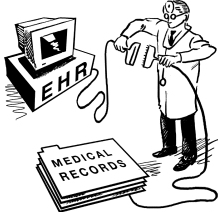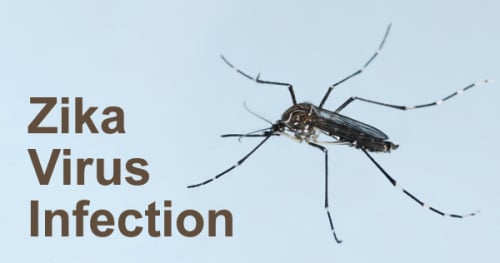 Self care is one of the most important facets of being a Nurse. On a daily basis, you encourage others to focus on their health and reduce stress. However, it’s necessary that you incorporate relaxation and practices that are beneficial to your health mainly for self care reasons, but also so you can be healthy for your patients. Nurses spend so much time caring for others that self care may not be at the forefront of your thoughts, but that doesn’t change how important it is.
Self care is one of the most important facets of being a Nurse. On a daily basis, you encourage others to focus on their health and reduce stress. However, it’s necessary that you incorporate relaxation and practices that are beneficial to your health mainly for self care reasons, but also so you can be healthy for your patients. Nurses spend so much time caring for others that self care may not be at the forefront of your thoughts, but that doesn’t change how important it is.
"Self-care is not selfish. You cannot serve from an
empty vessel." -Eleanor Brownn
Maintain healthy eating habits
Nurses need nutrition to maintain health and reduce stressors that cause cravings of high fat and high sugar foods. Your role can be highly stressful looking after seriously ill patients and working long hours. You may also have a family that depends on you. The laundry list of responsibilities can add up quickly. That is why it is essential for you to put your health first beginning with your nutrition. It may be wise to bring foods to work such as cut fruits, nuts, and prepared salads.
As a Nurse, you promote healthy behavior and nutrition information to your patients. You can be much more effective at getting patients to engage in healthy activities when you lead by example. Reduce inflammation and oxidative stress by consuming high amounts of antioxidants. An antioxidant is any food that inhibits oxidative stress. The most effective antioxidants can be found in fresh fruits, vegetables, nuts, healthy oils, salmon, and unpasteurized fruit juice. Did you know the pasteurization process reduces a great amount of nutrients in juice?
Exercises at work
To reduce stress and tension while increasing energy, practice deep breathing. This is a simple and highly effective activity that can easily be done at work. Practicing deep breathing after a stressful event is very helpful. The “quick calm” breathing exercise is done by taking a deep breath, holding for 3 seconds while thinking about being warm, and exhaling while thinking about being calm. This simple breathing exercise has a powerful effect in the body by using the abdomen to stimulate the vagus nerve. This nerve causes hormones to come into contact with the heart which lowers the heart rate. Sweating, muscle tension, and rapid breathing are all reduced with “quick calm” breathing.
Doing squats in place helps tone the entire body, especially the legs and buttocks. This exercise increases flexibility and strength. Calf raises are another easy exercise that will help tone muscles. Lunges and hamstring curls leaning over a chair can also be done in the workplace.
There are countless activities you can engage in before or after work such as:
- Yoga
- Cycling
- Running
- Swimming
- Weight lifting
![]()
Caring for the mind and emotions
All individuals need an activity that will bring them happiness, peace, and sense of well-being. Nurses are in a line of work that requires them to be supportive and show genuine interest in their patients. Your mental and emotional state is directly reflected in the quality of care you provide to your patients. There are healthy ways to reduce emotional exhaustion so that you and your patients have the best experience possible.
You have tremendous responsibilities. You should have an enjoyable pastime or hobby. Examples could be playing chess, painting, gardening, or jogging. Be sure to cater to your own emotional health which will allow you to be supportive to your patients. Taking time to spend with a loved one or enjoying an activity can mean all the difference in your happiness. Happy and healthy medical staff promotes a strong climate for patient care.
The concepts of Caring and Nursing are intertwined. While it is necessary for you to care for your patients, it is also necessary for you to receive care as well. It is important that you take moments throughout the day for nutrition, exercise, and emotional care. Just as there is no substitution for nutrition, there is none for exercise and tending to one’s mental and emotional state. You may experience guilt for taking time for yourself, but it is unnecessary to feel that way. Self care is essential to the livelihood and health of your well being.
Related Article: Work & Life Balance: A Nurse's Impossible Dream?
If you have any questions about Nursing we can help! Just click below and submit your question!



 Nursing is a challenging and rewarding occupation, requiring long hours and a dedicated focus while offering people who answer the call the opportunity to make a real difference in patients' lives. While many Nursing careers are found inside hospital walls, there is a wide range of settings that a Nurse can choose as a workplace.
Nursing is a challenging and rewarding occupation, requiring long hours and a dedicated focus while offering people who answer the call the opportunity to make a real difference in patients' lives. While many Nursing careers are found inside hospital walls, there is a wide range of settings that a Nurse can choose as a workplace.
 The proliferation of same-day surgery has changed health care in a dramatic way over the past two decades. Not only can same-day surgeries alleviate overcrowding in hospitals, they can also decrease a patient’s health care costs, decrease rehab time, and diminish the financial loss of taking time off from work to have surgery performed.
The proliferation of same-day surgery has changed health care in a dramatic way over the past two decades. Not only can same-day surgeries alleviate overcrowding in hospitals, they can also decrease a patient’s health care costs, decrease rehab time, and diminish the financial loss of taking time off from work to have surgery performed. America’s top companies are hiring the best, most qualified candidates, by widening their recruitment efforts and increasingly seeking diverse talent. Diverse workplaces include employees from different races, ethnicities, gender, education, religions, sexual orientations, socioeconomic backgrounds, geographic locations, and other varying conditions.
America’s top companies are hiring the best, most qualified candidates, by widening their recruitment efforts and increasingly seeking diverse talent. Diverse workplaces include employees from different races, ethnicities, gender, education, religions, sexual orientations, socioeconomic backgrounds, geographic locations, and other varying conditions. 
 Strong management is necessary for all work environments, especially those that involve quick decision-making and high-pressure situations. Nursing is a career that, undoubtedly, fits into this category. Quality Nurse Management is vital when creating successful Nursing teams. Nurse Managers have an effect on how their employees relate to each other and their patients. Regardless of the hospital unit the manager works in, he or she must lead with a firm yet compassionate hand, revealing what they expect from the team. What is the importance of strong Nurse Management?
Strong management is necessary for all work environments, especially those that involve quick decision-making and high-pressure situations. Nursing is a career that, undoubtedly, fits into this category. Quality Nurse Management is vital when creating successful Nursing teams. Nurse Managers have an effect on how their employees relate to each other and their patients. Regardless of the hospital unit the manager works in, he or she must lead with a firm yet compassionate hand, revealing what they expect from the team. What is the importance of strong Nurse Management? The profession of Nursing is engaged in a consistent conversation about the state of Diversity in Nursing. The way these figures are tallied are by comparing the percentage of individuals of various ethnic or cultural backgrounds in the general population to the relative group percentages in the field of Nursing. Many professional Nursing publications have been observant that Diversity in the Nursing field has improved, but there is still much additional room for continued improvement.
The profession of Nursing is engaged in a consistent conversation about the state of Diversity in Nursing. The way these figures are tallied are by comparing the percentage of individuals of various ethnic or cultural backgrounds in the general population to the relative group percentages in the field of Nursing. Many professional Nursing publications have been observant that Diversity in the Nursing field has improved, but there is still much additional room for continued improvement.

 There are undoubtedly a number of myths about the Nursing profession. Being a Nurse is as rewarding spiritually as it is financially, but unfortunately, many qualified individuals overlook the Nurse career path due to any number of possible misconceptions. After debunking some of these Nursing myths, it becomes easier to decide whether a career in Nursing makes sense for anyone considering it.
There are undoubtedly a number of myths about the Nursing profession. Being a Nurse is as rewarding spiritually as it is financially, but unfortunately, many qualified individuals overlook the Nurse career path due to any number of possible misconceptions. After debunking some of these Nursing myths, it becomes easier to decide whether a career in Nursing makes sense for anyone considering it. In the 1960's colleges in the United States began to develop software that could be used for electronic medical records. It took until the 1990's before a usable program was initially implemented. This article will address the major pros and cons.
In the 1960's colleges in the United States began to develop software that could be used for electronic medical records. It took until the 1990's before a usable program was initially implemented. This article will address the major pros and cons.
 Infections borne by mosquitoes are nothing new, however a new virus has recently gained intense global attention because of its potential link to birth defects. In the vast majority of cases, the Zika Virus is spread by the bite of infected female mosquitoes of the Aedes genus. The virus was first isolated in 1947, in the Zika forest located in Uganda. Before 2015, Zika virus outbreaks had been confirmed only in Africa, Asia, and the Pacific Islands. In May of 2015, Brazil reported an outbreak of the virus, and since then, the virus has rapidly spread across Central and South America. The virus has currently been identified in at least 33 countries, and the World Health Organization predicts that 3 to 4 million people will be infected by the virus over the next year.
Infections borne by mosquitoes are nothing new, however a new virus has recently gained intense global attention because of its potential link to birth defects. In the vast majority of cases, the Zika Virus is spread by the bite of infected female mosquitoes of the Aedes genus. The virus was first isolated in 1947, in the Zika forest located in Uganda. Before 2015, Zika virus outbreaks had been confirmed only in Africa, Asia, and the Pacific Islands. In May of 2015, Brazil reported an outbreak of the virus, and since then, the virus has rapidly spread across Central and South America. The virus has currently been identified in at least 33 countries, and the World Health Organization predicts that 3 to 4 million people will be infected by the virus over the next year.